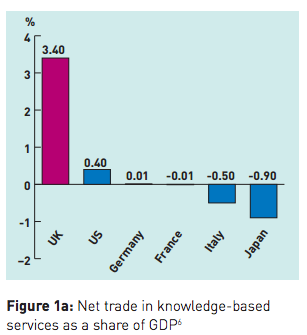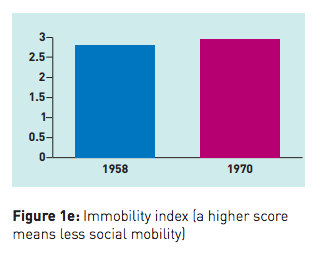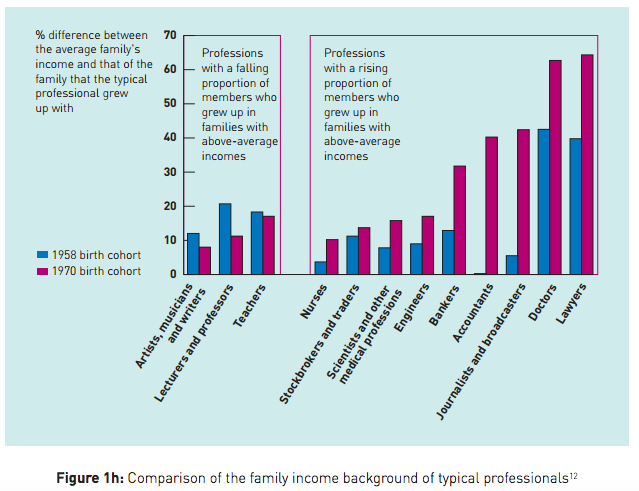Fair access to the professions
902 words | ~5 min
The Panel on Fair Access to the Professions has released its final report, Unleashing Aspiration. One of its central arguments (which, alarmingly, seems to have been in place since before the panel was set up), is that 'social mobility into professional careers has slowed', and that 'if action is not taken to reverse historical trends, tomorrow's generation of professionals will today grow up in families that are better off than seven in ten of all families in the UK'. These arguments, and the evidence behind them, are laid out in Chapter 1 of the report. However, some of the reasoning is distinctly questionable.
To start with, the definition of a profession seems purpose-built to exclude those which are less exclusive, and thus lend weight to the central argument. The list of example professions given reads:
‘Life science’ professionals, such as doctors, dentists, nurses and vets; Legal professionals, such as judges, barristers, solicitors, paralegals and court officials; Management and business service professionals, such as accountants, bankers, management consultants and business and finance advisers; ‘Creative industry’ professionals, such as journalists, publishers, designers, writers and artists; Public service professionals, such as senior civil servants, managers in local government, armed forces officers and senior police officers; Scientists, such as archaeologists, chemists, mathematicians and physicists; Education professionals, such as professors, lecturers, teachers and early-years specialists; and Built environment professionals, such as architects, engineers, surveyors, town planners, urban designers and construction specialists.
With the exception of 'construction specialists' (slightly vague), there is no mention of what used to be called trades: the builders, fitters, bricklayers, plumbers, electricians, stonemasons, thatchers and the like whose occupations all fit the report's criteria of having recognisable entry points, codes of ethics, systems for self-regulation and a professional development. From a government that so trumpets its investment in apprenticeships and training, this seems a curious omission.
The following figure is used to make the claim that 'the UK is a world leader when it comes to knowledge-based services':

Though this suggests that the UK needs a better spread away from knowledge-based services, which a quick analysis of our economic situation would tell you anyway. (The definition of a 'knowledge-based service' is hazy too - it's not clear whether, for example, doctors count as knowledge workers.)
The report also rolls out a variant on the usual inaccurate story about declining social mobility (see my link above). Writing that 'there is some recent evidence that the UK may have reached the bottom of a long-running decline in social mobility', the authors of the report make the common mistake of treating measures of intergenerational mobility from previous longitudinal studies as points on a line rather than discrete snapshots, and of assuming a continued downward trend which is not necessarily correct (and which, given the length of time it takes to gather evidence, we won't be able to see for years yet). This does not detract from the analysis which suggests that social immobility remains a problem.
This chart is also telling:

The analysis on this is incredible. This is presented as evidence of 'growing social exclusivity' among the professions, and four reasons are given for the trend.
- 'Opportunity hoarding' (i.e. elitism) by professions;
- 'Qualification inflation' as more professions require higher qualifications
- Lack of movement from vocational training into professions
- Concentration of professional jobs in London and the South East
The most striking insight from recent comparison studies on social mobility is completely omitted. This is that there is a strong link between parental income and educational attainment.
This insight is the killer. Bear it in mind, and the over-representation of the children of rich families in professions requiring high-level qualifications is thrown into a different light. Rich kids, in short, do better at school, get to better universities, and get into better jobs. The higher average educational attainment of rich kids also explains, in large part, the strong intergenerational income correlation: rich parents are most likely to have kids that end up rich, and the education system is a significant vector by which wealth is passed on. And looking at the chart above, it's no surprise that the professions that hire the most rich kids are the ones with high salaries: law, medicine, finance and accounting. (Journalism is a fascinating anomaly that says a lot about the changing role and perceived power of broadcasters.)
Seen through the lens of this insight, the big story about mean elitist professionals pulling up the drawbridge to keep the insiders in and the outsiders out looks pretty insignificant. This chart, though, takes on a whole new significance:

It tells the story of a generation of children from rich parents who have been sent to independent schools, where they have received an education far better geared to helping them achieve high qualifications and professional jobs than the education received by their peers who were reliant on state provision. Without really meaning to, this report damns a generation of state educational policy and exposes its role in hindering access to the professions.
# Alex Steer (23/07/2009)